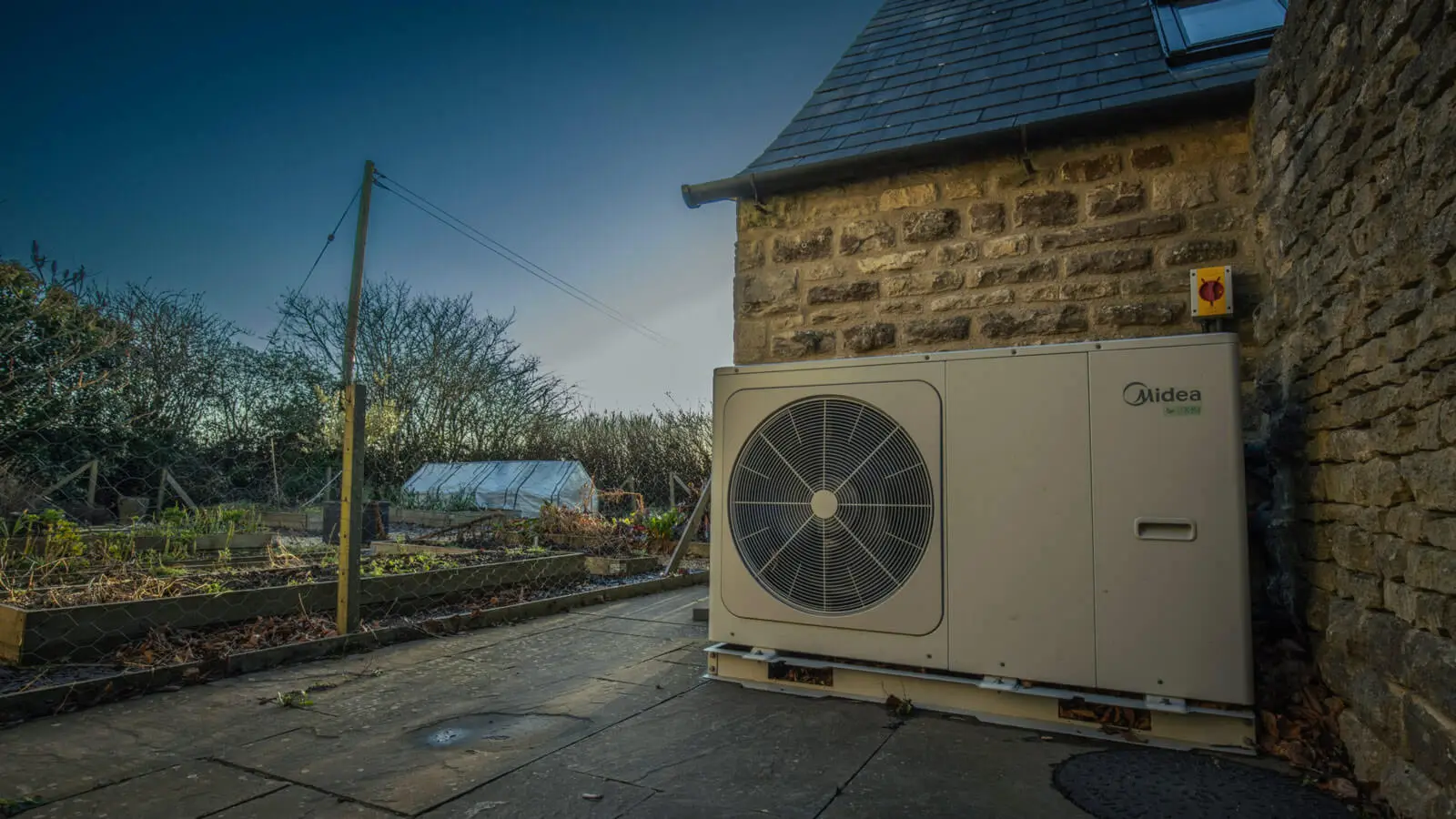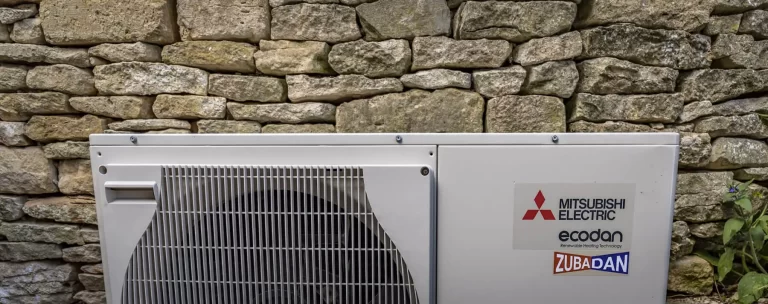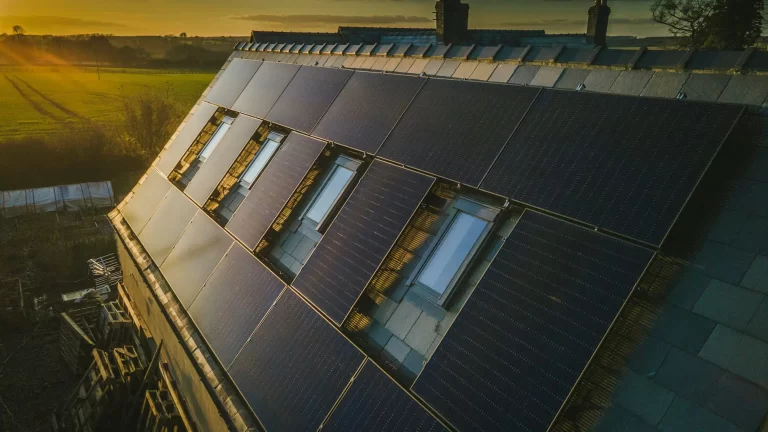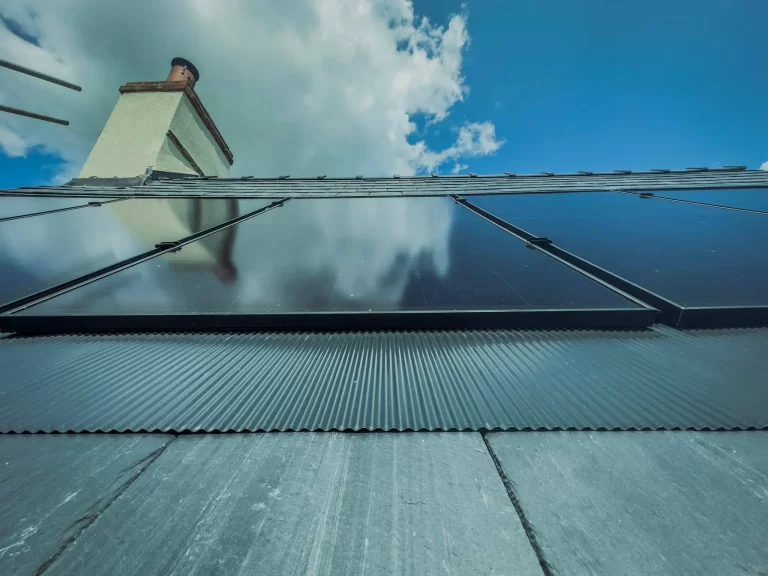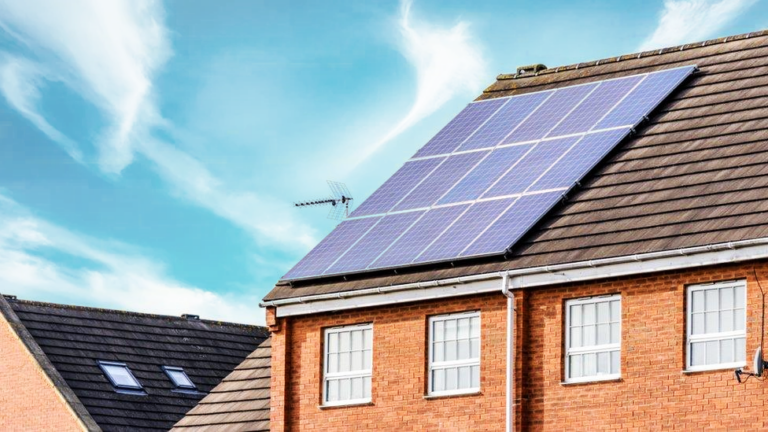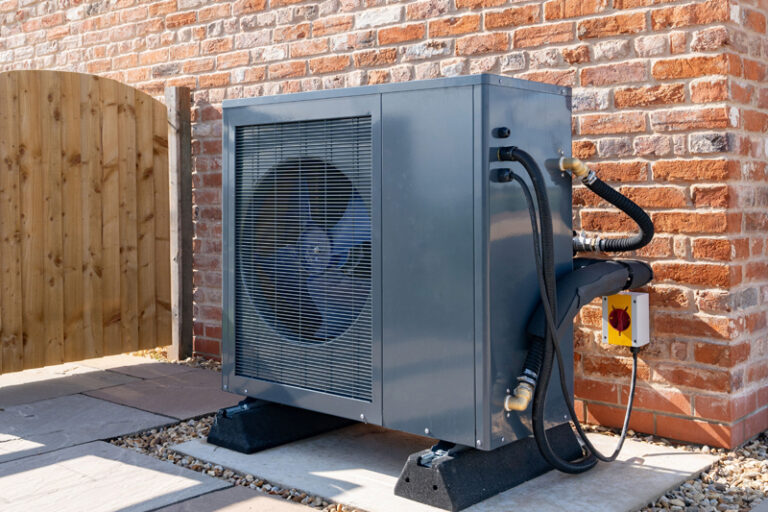Heat pumps do produce noise, but most homeowners don’t find them to be particularly noisy and most neighbours won’t be disturbed by the sound either. However, noise levels will vary between heat pumps and some may be louder than others depending on the manufacturer or their size. This blog will help you to better understand the kind of noise you can expect from a heat pump and whether it’s likely to be a cause for concern.
Are heat pumps louder than noise regulations?
A common question among homeowners considering a heat pump is whether these systems comply with noise regulations. The reassuring news is that heat pumps are designed with strict adherence to noise standards, ensuring they do not exceed legal noise limits set for residential areas.
Manufacturers of heat pumps are well aware of noise regulations and have invested significantly in technology to reduce the noise output of their units, meaning modern heat pumps are equipped with sound-dampening technology and quieter components, such as low-noise fans and compressors, to ensure they operate within acceptable noise levels for residential areas.
What kind of sound does a heat pump make?
The sound a heat pump makes is often described as a low, constant hum, similar to that of a refrigerator, and is typically thought of as white noise by most homeowners. This noise comes from the fan and compressor working to transfer heat from the air outside into your home and some models may also produce a soft clicking sound when starting up or shutting down. The type of noise and its volume can vary depending on the model and its location, but placing the unit away from windows and ensuring it’s properly installed can help minimise potential disturbances.
What level of noise do heat pumps produce?
The noise level of a heat pump is typically measured in decibels (dB). On average, residential heat pumps operate within the range of 40 to 60 dB, which is comparable to the sound level of a quiet conversation at home or background music. It’s worth noting that the perceived loudness of a sound doubles with every 10 dB increase, so a heat pump operating at 60 dB will sound significantly louder than one at 50 dB. However, even at the higher end of this range, the noise level is generally not intrusive and shouldn’t cause a disturbance to most people.
To put the decibel levels into perspective, it’s helpful to compare them with familiar sounds in our everyday environment. A whisper in a quiet library might register around 30 dB, making it quite soft, while normal conversation typically falls around 60 dB, similar to the sound of a moderately busy street. This means that the noise from a heat pump at the lower end of its operating range (40 dB) is actually quieter than a normal conversation.
At the upper end (60 dB), the noise level is like having a conversation in a living room, which most people find perfectly comfortable in their daily lives. It’s also worth noting that indoor ambient noise in a typical home often falls within this range, helping to mask the sound of a heat pump even more.
Are air source heat pumps noisier than ground source?
While it’s true that air source heat pump (ASHP) noise can be louder than their ground source counterparts, it’s important to note that the sound they produce is often not a cause for concern. Advances in technology have led to much quieter models in recent years, and the noise emitted by these units is generally comparable to the low hum of a modern refrigerator or a quiet conversation.
The noise from ASHPs primarily comes from the outdoor unit, which includes a fan to move air across the heat exchanger. However, manufacturers have made significant improvements in design to reduce this noise, making it less intrusive. Proper installation and strategic placement of the outdoor unit can further minimise any sound, ensuring it blends seamlessly into the background of everyday life.
Ground source heat pumps (GSHPs), by nature, operate more quietly. Their system is mostly underground, where the extraction and transfer of heat occur silently. Any noise is confined to the indoor unit, which is designed to operate quietly within your home.
Are heat pumps louder than gas boilers?
The perception that heat pumps are noisier than gas boilers is a common misconception, as recent advancements in heat pump technology have significantly reduced their noise levels, making modern heat pumps comparable to, or in some cases even quieter than, traditional gas boilers.
Gas boilers, while generally quiet, do produce some noise during operation, mainly from the burner igniting and the water circulating. This noise is typically localised to the boiler’s location and not heard throughout the house, however, it’s important to note that the noise from a gas boiler can vary depending on the age and condition of the unit.
Modern air source heat pumps operate within the range of 35 to 45 dB for the outdoor unit, which is actually quieter than light traffic noise, meaning heat pumps are unlikely to contribute towards noise pollution.
What’s more, the noisiest part of the heat pump is outside and unlikely to cause much disturbance indoors. Even if you or your neighbours are outside enjoying the garden, your heat pump won’t be used as much during the warmer months, meaning there should only be minimal white noise levels.
How to Minimise Heat Pump Noise
Heat pump noise shouldn’t be a concern for most people, but if you are particularly worried, here are some ways you can ensure your heat pump makes the least amount of noise possible:
- Proper Heat Pump Installation: Ensuring your heat pump is correctly installed by a professional can significantly reduce noise levels. This includes proper placement and securing of the unit to minimise vibration.
- Regular Maintenance: Regular servicing can help keep your heat pump running smoothly and quietly. This includes cleaning filters and checking for any parts that may need repair or replacement.
- Strategic Placement: Consider the location of your heat pump carefully, as placing it away from bedrooms and neighbours’ properties can help reduce noise disturbance.
- Use of Noise-Reducing Features: Some heat pumps come with noise-reducing features or can be fitted with acoustic enclosures to dampen sound, which can be particularly useful in densely populated areas.
Have More Questions About Heat Pump Installations?
It’s natural to have questions or concerns before making the switch to an air source or ground source heat pump, especially regarding noise levels, operational efficiency, or the installation process. At Cotswold Energy, we understand that every home is unique, and so are the needs of every homeowner. Our team of experts is dedicated to providing you with personalised advice and support, ensuring that your transition to a heat pump is seamless, efficient, and tailored to your specific requirements. Whether you’re curious about the different types of heat pumps, their environmental benefits, or how to optimise your home for energy efficiency, we’re here to help.

